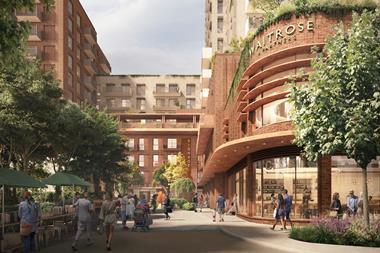The hospitality sector is on its knees. It wrongly bore the brunt of the blame for the spread of Covid-19, which has continued to proliferate in spite of extensive closures. The tiering system has proved a further nightmare, singling out hospitality disproportionately.

Just 24 hours’ notice was given to London operators of entering Tier 3, having reopened after lockdown for only 10 days of the busiest period of the year. Yo-yoing between closure and different restrictions is a logistical nightmare. Operators are managing staff in and out of furlough, destroying produce ordered in good faith; the human and economic cost is massive.
Most operators have traded at a reduced turnover since March (some are up to 70% down); cash reserves are nonexistent; and fewer covers and distancing measures mean margins are squeezed more than ever.
Many in London were planning for Christmas after the second national lockdown in November, spending money on external heaters, upgrading outdoor furniture and putting enormous effort into creating Covid-secure environments, in an attempt to recoup a fraction of the year’s losses, before it was quickly put into Tier 4. Now, with a national lockdown under way, there is no end in sight to the problems the sector faces.
While the vaccine has brought hope to the sector, it is a slow process and there is a tricky year ahead. Debt has accrued and depleted cash reserves are being preserved in case of further lockdowns. Uncertainty around re-opening and the focus on survival makes business planning very difficult and creates a tough environment for strategic decision making and expansion.

The furlough scheme and business rates relief help, but not enough to prevent closures and for some, the end of the forfeiture moratorium is likely to be terminal. The absence of a hospitality minister has led to political decisions being made inconsistently and with a lack of understanding of the challenges of an ever-changing backdrop.
The loss of Christmas trade and effects of 2020 will be felt this year, particularly once the furlough scheme winds up, which will sadly result in many businesses not re-opening.
There is likely to be a glut of vacant restaurants and those in the market to buy will be looking for good deals and to minimise risk. There will be a flight to prime, which we have seen already as confidence picked up towards the end of 2020. Caution will remain over tourist- and office-led locations, with less clarity on when normality may return in such locations.
This is not the end of our hospitality sector. It will be a period of blood, sweat and tiers, but the best operators will emerge stronger. The market will contract, but nothing can replace our love of eating and drinking. The challenge now is survival.
It will be a long hard winter. Strong communication and an open dialogue with tenants is more important than ever to keep voids to a minimum.
Camilla Topham is co-founder of Distrkt






























No comments yet